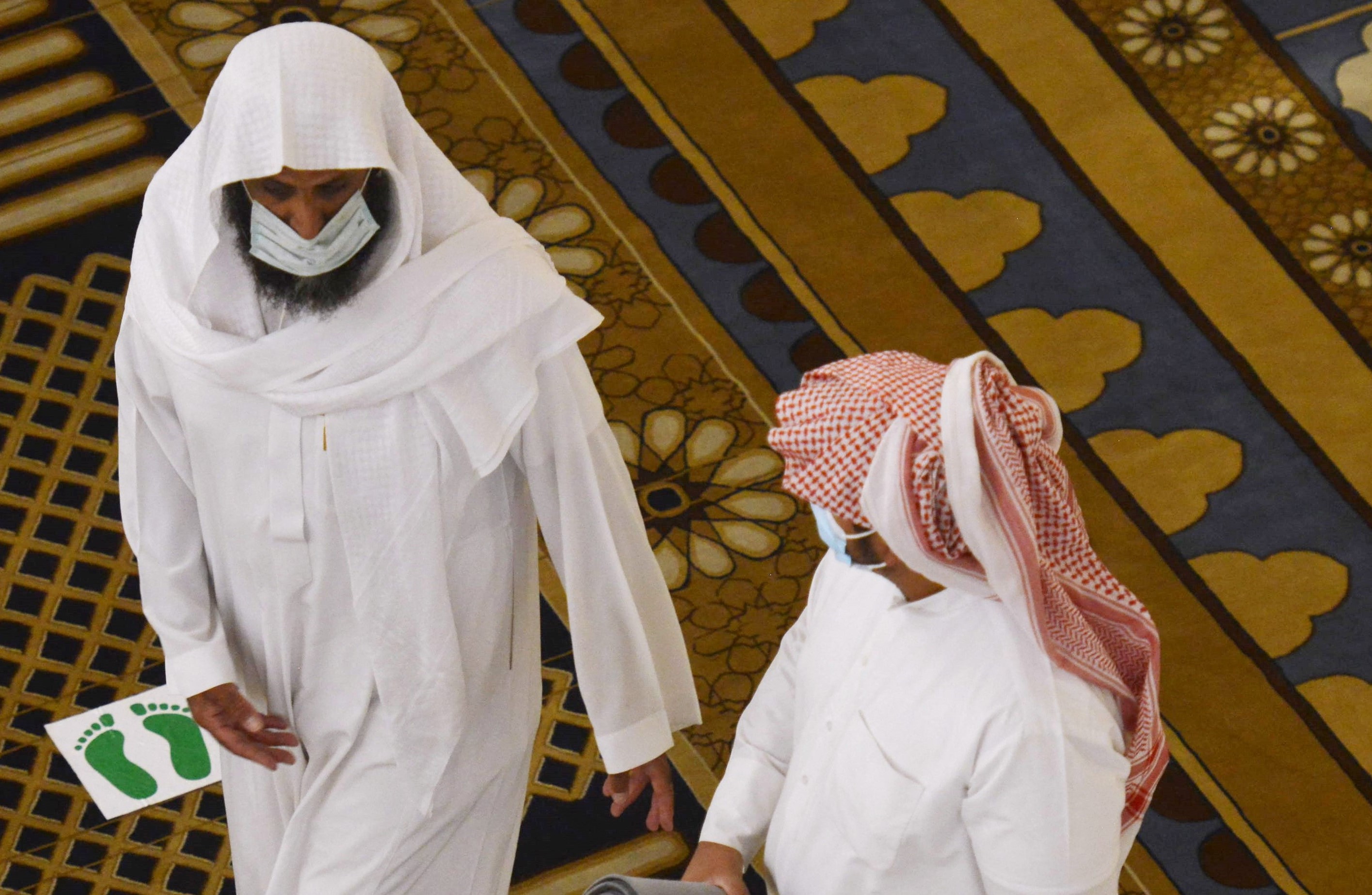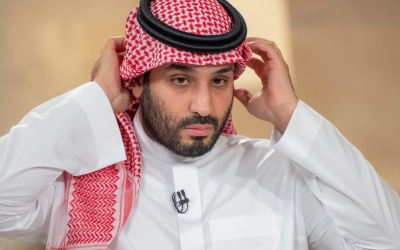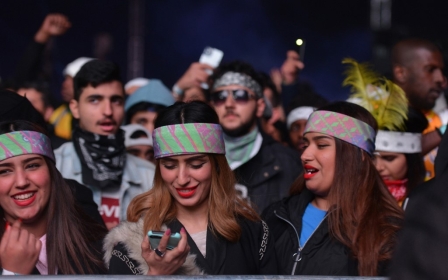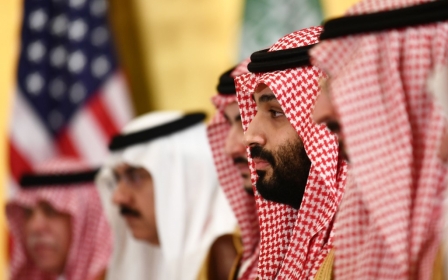MBS, Vision 2030 and religious reform: An incoherent blend of modernism and despotism
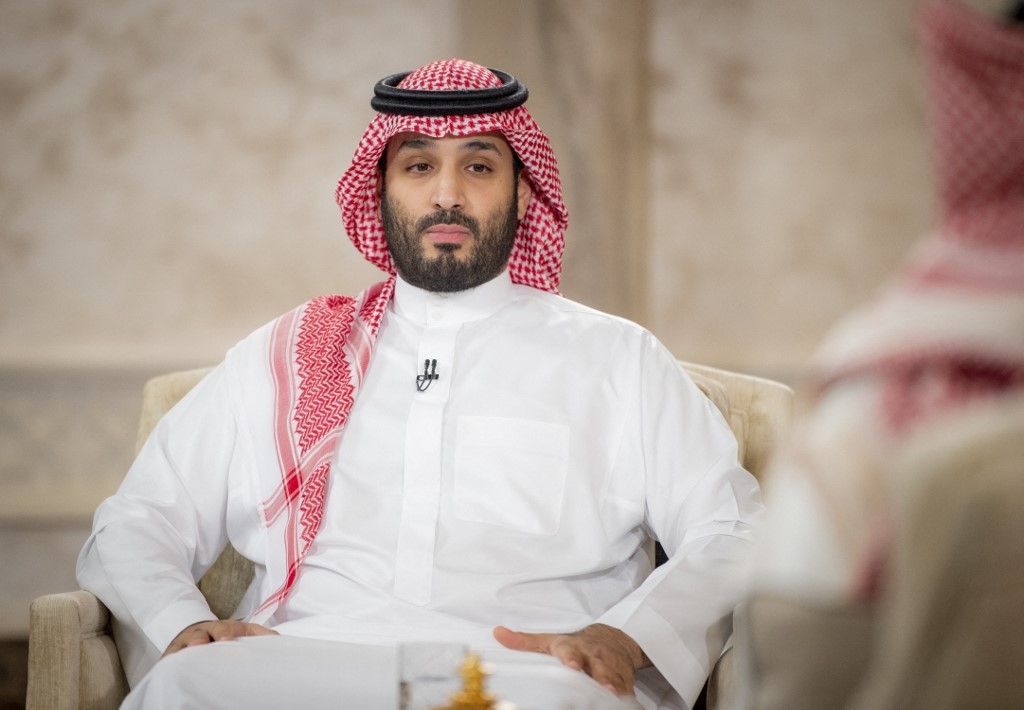
Late last month, Saudi Crown Prince Mohammed bin Salman gave a wide-ranging, 90-minute interview on the state-owned Rotana channel with host Abdullah al-Mudaifer. The crown prince gave detailed accounts of his achievements thus far and what remains to be done. Particularly impressive were his claims on the improved efficiency of Saudi government ministries and agencies.
No reasonable person would disagree with the premise that the Saudi state needs radical administrative reforms to allow it to efficiently execute government policy. Prince Mohammed also spoke about religious policy in the reforms he envisions, reaffirming the basic constitutional structure of the kingdom as resting in the Quran, the sunnah of the Prophet Muhammad, and the kingdom’s Basic Law.
In the course of explaining the country’s future religious policy, however, the crown prince said two things that probably surprised the Saudi religious establishment.
Many would like to see a much more fulsome renunciation of those doctrines that make coexistence with the 'Other' - both Muslim and non-Muslim - impossible
Firstly, he said that the Saudi constitutional system, while bound by the sunnah of the Prophet, only recognises as constitutionally binding those texts of hadiths (reports) that are considered mutawatir. A hadith of the Prophet is considered mutawatir only if it was reported by such a large number of transmitters across generations that it is inconceivable it could have been fabricated. In other words, the hadith needs to have been transmitted on the same scale as the Quran, the transmission of which, everyone agrees, satisfies this stringent requirement. Otherwise, in the case of hadiths that do not rise to this level of certainty, the government will only apply them to the extent that they are consistent with the well-being of the people of Saudi Arabia.
The second statement that surely raised the ire of the religious establishment was Prince Mohammed’s disavowal of any loyalty to Wahhabism. Without denouncing Wahhabism as such, the crown prince asserted that it is contrary to Islamic monotheism - which does not recognise any intermediaries between people and God - to endow the views of any particular person with a special status. He went so far as to say that if the founder of Wahhabism were alive today, he would have been the first to reject the notion that his ideas should be taken unquestioningly.
The centrality of intention
Both propositions - while they might seem quite limited from the perspective of someone unfamiliar with the doctrines of Islamic jurisprudence and theology - are potentially quite revolutionary. At the same time, they might not mean very much.
When the crown prince speaks of being bound only by those hadiths whose transmission was as widespread as the Quran, he is essentially speaking of a null set: no individual hadith has been so widely transmitted that it is comparable to the Quran. For that reason, jurists have distinguished between two kinds of mass-transmitted texts: one whose wording (lafz) was mass transmitted, and one whose meaning (ma'na) was widely transmitted.
To give a simple example, every Muslim is taught the hadith: “Deeds are judged only by their intentions.” This is not a mass-transmitted hadith in terms of wording. It was transmitted by only one companion, and then by only one person of the next generation. It only became widespread or famous in the third generation and thereafter.
But that only refers to its particular wording. Countless hadiths and verses of the Quran corroborate the centrality of intention to Muslim ethics. Accordingly, jurists say that this particular hadith, with respect to its wording, is a solitary hadith, and therefore can only be given probable attribution to the Prophet, while its meaning - being widely corroborated through scores of other texts - is certain.
Without clarifying whether the Saudi state claims to be bound only by hadith texts whose wording, as opposed to meaning, is mass transmitted, the crown prince could either mean that the sunnah has effectively lost any role in the Saudi constitutional order, or that only those foundational principles of the sunnah whose meanings are essentially incontrovertible are constitutionally binding.
The problem with Wahhabism
This leads to the next ambiguity in his response to the relationship of the Saudi state to Wahhabism. Wahhabism was not, in the first instance, a legal movement, but rather a theological movement dedicated to what it understood to be a pure and uncompromising monotheism.
Among its most destructive consequences was its tendency to transform every disagreement, no matter how seemingly small, into a matter of faith and disbelief. This is because Wahhabists believed that a failure to give proper weight to religious texts - as they understood them - amounted to rejecting divine sovereignty and was tantamount to unbelief.
On this basis, Wahhabists anathematised the vast majority of the Muslim world. They also adopted a rigorous doctrine of “loyalty and disavowal” (al-walāʾ wa’l-barāʾ), whose followers not only have an affirmative duty to display contempt toward unbelievers (now defined to include much of the Muslim world) but also had the same duty toward Muslims who failed to display sufficient intolerance of unbelief.
It was the principled and rigorous intolerance of the Wahhabi movement that created much havoc in the Muslim world. If the Saudi government truly wishes to turn the page on Wahhabism, it must be more forthright in distancing itself from the doctrine that makes even intra-Muslim pluralism inconceivable, to say nothing of inter-religious pluralism.
While the crown prince’s statement disestablishing Wahhabism, if carried out, is no doubt welcome, many would like to see a much more fulsome renunciation of those doctrines that make coexistence with the “Other” - both Muslim and non-Muslim - impossible.
A modern vision
Finally, there is no small irony in the crown prince staking out a religious programme that seeks to limit dogmatic adherence to every prophetic report in favour of the public interest, and to promote space for personal rights and toleration. Muslim modernists have articulated this vision for more than a century, with a fundamental difference: hand-in-hand with calling for a pruning of what constitutes "religion", they have also called for greater public participation in government through democracy.
Despotic Arab states have been willing to accept their religious arguments, while assiduously refusing to implement their calls for democratisation. Indeed, many of the scholars most interested in the kinds of religious reforms referenced by the crown prince are either in jail or accused of supporting terrorism, precisely because they also insist on the political programme of Muslim modernism.
Ultimately, we will only be able to take seriously these calls when Prince Mohammed recognises the right of Muslims to rule themselves politically
In this respect, Prince Mohammed’s approach to government is no different from that of other modern Arab leaders: seeking social reforms without providing space for public participation in government.
What he does not seem to realise is that his dream of a modern, efficient Saudi state that leads its people to prosperity can be achieved only through the active participation of Saudi citizens. Even though he acknowledges that Vision 2030 can succeed only if Saudi citizens embrace the plan, he fails to recognise the crucial role that democratic institutions play in producing the type of social consensus required to implement a transformative vision.
The kind of independent thought the crown prince is calling for in matters of religion - and which Muslim modernists, such as Rashid Rida, were the first to call for and who saw in the kingdom a place where such a renewal could take place - is incompatible with the crown prince’s despotic style of rule.
Ultimately, we will only be able to take seriously these calls when Prince Mohammed recognises the right of Muslims to rule themselves politically.
The views expressed in this article belong to the author and do not necessarily reflect the editorial policy of Middle East Eye.
This article is available in French on Middle East Eye French edition.
Middle East Eye propose une couverture et une analyse indépendantes et incomparables du Moyen-Orient, de l’Afrique du Nord et d’autres régions du monde. Pour en savoir plus sur la reprise de ce contenu et les frais qui s’appliquent, veuillez remplir ce formulaire [en anglais]. Pour en savoir plus sur MEE, cliquez ici [en anglais].



